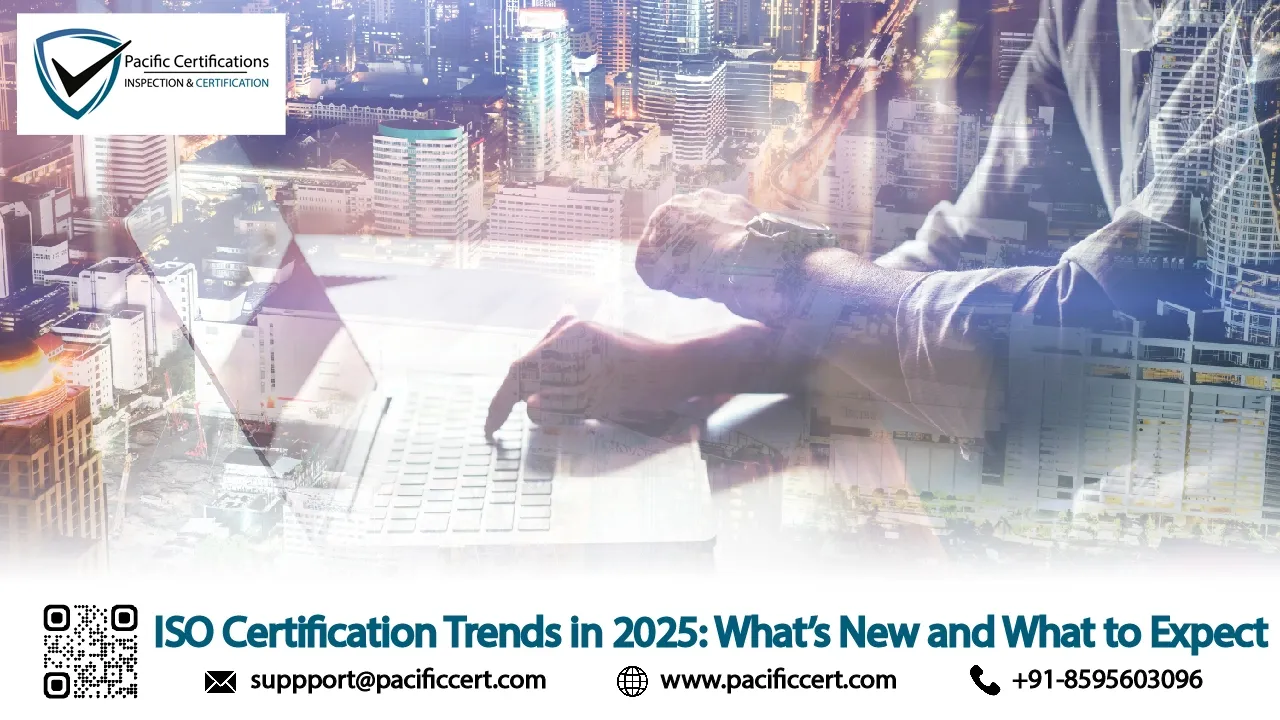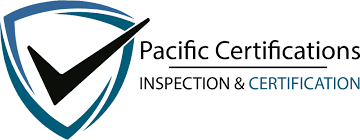ISO Certification Trends in 2025: What’s New and What to Expect

As we transition into 2025, we can expect that ISO certifications are continuing to change to meet and adapt to the needs of businesses and industries. With the growing focus on sustainability, digital transformation, and more industry-specific standards, the ISO certification landscape is changing rapidly. In this blog, we will highlight the latest ISO certification trends for 2025, and how they will include the latest changes, challenges, and opportunities for businesses.
For assistance, contact us at [email protected].
Introduction
ISO certifications are a global credential to signify quality, conformity, and operational excellence across numerous industries. As our business climate evolves with technology, sustainability, and customer expectations, ISO standards will continue to be updated and improved to remain relevant. The trends that impact ISO certification in 2025 are digital transformation, sustainability and industry-specific certification which offer new opportunities for improvement, compliance and further show the social responsibility of an organization.
In this blog, we outline the ISO certification trends to watch for and how organizations can utilize these trends to remain competitive, improve efficiencies and comply with global standards.
ISO 9001:2015- Embracing Digital Transformation
The ISO 9001:2015 standard is in the process of a major overhaul, which is expected to be released soon as ISO 9001:2026. Companies are increasingly using digital technologies to improve their quality management systems (QMS) and ISO 9001 is being revamped to integrate these changes.
Some expected updates will include adding digital integration of tools and technologies within the QMS, a more systematic approach to identifying and mitigating risks, deeper involvement of stakeholders in decision-making processes, and recognizing and facilitating environmental and social considerations as part of quality-related practices and processes. The revisions will further aim to simplify the requirements in order to allow more flexibility across different organizational contexts.
Sustainability and ESG Integration
As businesses and consumers put a higher focus on sustainability, Environmental, Social, and Governance (ESG) factors are now central to ISO certifications, and ISO is integrating these frameworks into existing standards. Many of the ISO standards are evolving, specifically ISO 14001:2015 (Environmental Management), now with an emphasis on sustainability and carbon neutrality.
There are numerous sustainability-related trends that will become more prevalent by 2025, including carbon neutrality and pushing organizations to curtail their carbon footprints and embrace climate-positive opportunities; circular economy practices by promoting resource efficiency, waste minimization and sustainable procurement supply chain processes; and improvements in green finance by developing standards that will support sustainable finance and investment practices.
Digital Transformation in Certification Processes
As ISO certification processes are becoming digitally focused, the certification processes are speeding up, more smooth, and more transparent with variety of trends. The use of remote audits is growing, with various businesses and certification bodies using digital technologies to create an audit experience that does not require a visit. More flexibility and accessibility are achieved by the use of digital technologies. Artificial Intelligence is also now being used to evaluate data and determine compliance levels, allowing for more effective and smooth assesment through the data analysis - resulting in quicker and more consistent audits.
The purpose of these developments is to support more effective, accessible and transparent certification processes - supporting organizations justify their efforts in compliance.
For assistance, contact us at [email protected].
Increase in Industry Standards
With more specialization in various industries, there has been a continual growth of industry-specific or sector-specific ISO standards. These standards help to resolve the challenges faced by those specific industries or sectors, add structure to compliance - in the interests of continuous improvement.
Examples of more prevalent industry specific standards now include ISO/IEC 27001 on Information Security Management, ISO 22000 on Food Safety Management, ISO 45001 on Occupational Health and Safety. Those organizations with industry specific certifications can address the need to meet the specific challenges of the industry while working within internationally recognized standard. With the increasing regulation of industrial sectors, these standards will only increase in importance as they provide structure to compliance and improving operational activities.
Market Growth and Adoption
The market for ISO certification is on the rise. Organizations are increasingly acknowledging the strategic benefits of having certifications to gain quality, efficiency, and compliance. As organizations recognize and access the value of ISO certification, the demand for ISO certifications should increase. The global ISO certification market is expected to increase from USD 16.14 billion in 2024 to around USD 18.59 billion in updated forecasts for 2025.
A high growth rate of around 15.2% compound annual growth rate (CAGR) indicates the increasing prevalence of ISO standards across sectors. Growth can be attributed to ISO certificates being valuable assets for organizations looking to improve implementations, reduce risks, and follow global norms.
The Rise of Cybersecurity and Privacy
As the spectrum of digital threats worsens, cybersecurity and data privacy will represent a growing area of ISO standards. ISO/IEC 27001, the Information Security Management Standard, will inevitably continue also to evolve to address cybersecurity, data breach and privacy regulations such as GDPR.
ISO/IEC 27001:2022 is a standard that provides an effective framework for organizations by managing risks around information security and protecting data. ISO/IEC 27002:2022 provides guidelines to implement the security management practices and standards around organizational information security.
Emphasis on Risk-Based Thinking
ISO standards are increasingly taking a risk-based approach to compliance and quality management. The goal is to anticipate and mitigate risks, allowing an organization to proactively manage them before they affect the operation of the business. Taking a proactive approach to risk management not only allows organizations to prepare for disruptions but, further extends organization's resilience and sustainability in the long run.
The reactive approach to the impact of risk will require organizations to shift and improve their efforts to identify, assess and address risk before they present issues. Organizations that use risk-based thinking to employ risk more effectively will be able to manage uncertainties and disruptions in their business operations, making for easier consistency in continuity of operations and reducing the risk of loss.
How to prepare for ISO certification in 2025?
Move to the Digital World:
Use technological resources to improve, and/or automate compliance processes and quality management.
Include Sustainability:
Integrate sustainability into the business model, in line with environmental standards and stakeholder expectations.
Prepare for Future Standards:
Understand ongoing updates and revisions to ISO standards, and prepare your organization to implement them.
Provide Education and Training:
Review training on changes in your industry that affect ISO standards.
Contact Us
Pacific Certifications can help guide your organization through the ISO certification process. Whether you’re looking to improve compliance, streamline operations, or improve customer satisfaction, our team of experts is here to assist you every step of the way.
For assistance, contact us at [email protected].
Visit our website at www.pacificcert.com.
Ready to get ISO certified?
Contact Pacific Certifications to begin your certification journey today!
Suggested Certifications –
Read more: Pacific Blogs

